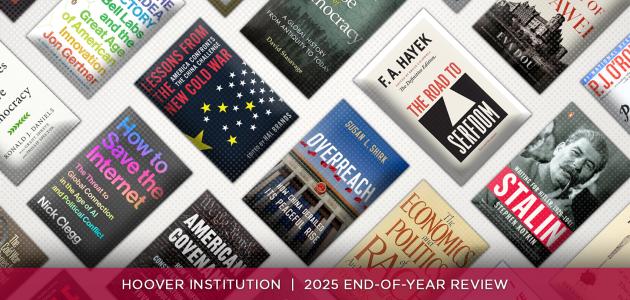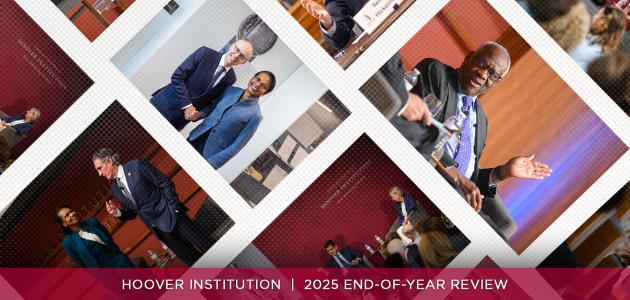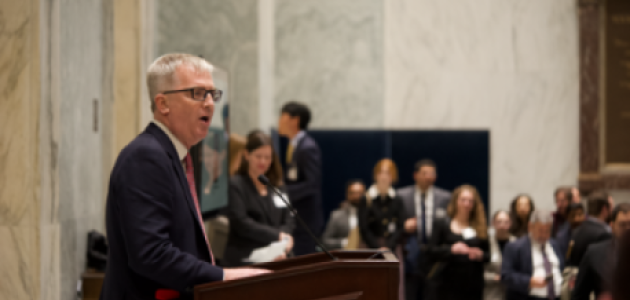On November 9, 2001, President George W. Bush issued a proclamation declaring that day--which marked the anniversary of the fall of the Berlin Wall--World Freedom Day:
“Since the fall of the Berlin Wall, many countries have achieved freedom via the ballot box, through political pressure rising from their citizens, or as a result of the settlement of internal or regional conflicts,” Bush said. “We celebrate the new freedom in which much of the world lives today.”
The president’s proclamation had its roots in the work of Hoover fellow Arnold Beichman, who had called for such recognition a decade earlier. In a column for the Washington Times on November 9, 1991, Beichman wrote:
“On November 9, 1989 a hated symbol of 70 years of communist tyranny came to a squalid end. The fear of nuclear war between the two superpowers was over. World peace seemed more assured than ever before in modern history.
“November 9 from this day forward should be a day for world observance. In years to come we will realize that the man whose policies made that victory possible was Ronald Reagan.
“Let us remember that this victory came without bloodshed, without marching armies, without loss of life, without nuclear fallout. Unprecedented in modern times, victor and vanquished together have acclaimed the end of the Cold War. Everybody won. November 9 each year would be a warning to future tyrants that tyranny, whether military as in Burma or ideological as in China and Cuba, has no future.
“November 9--World Freedom Day.”
Beichman’s inspired idea remained unrealized until it was resurrected by President Bush this year. Beichman credits the renewed interest in a World Freedom Day to the terrorist attacks of September 11, 2001.
Reflecting back, he found one event during the final years of the cold war particularly inspired him.
“In 1987, President Reagan made a speech at the Berlin Wall. [Hoover fellow] Peter Robinson wrote that speech. In his speech, Reagan issued an apostrophe: ‘General Secretary Gorbachev, if you seek peace, if you seek prosperity for the Soviet Union and Eastern Europe, if you seek liberalization: Come here to this gate. Mr. Gorbachev, open this gate. Mr. Gorbachev, tear down this wall.’ That stayed with me a long time. Then in 1989, the wall came down and all of Europe was transformed. My son, John, sent me a fantastic photograph, taken at night under very garish spotlights; it shows people dancing on the wall. It suddenly became a symbol of freedom for me.”
Today’s World Freedom Day holds the same significance for Beichman that it did ten years ago.
“We’re still fighting for the same ideals. The values are still the same as I saw in 1991.”
The Hoover Institution, founded at Stanford University in 1919 by Herbert Hoover, who went on to become the 31st president of the United States, is an interdisciplinary research center for advanced study on domestic public policy and international affairs.













